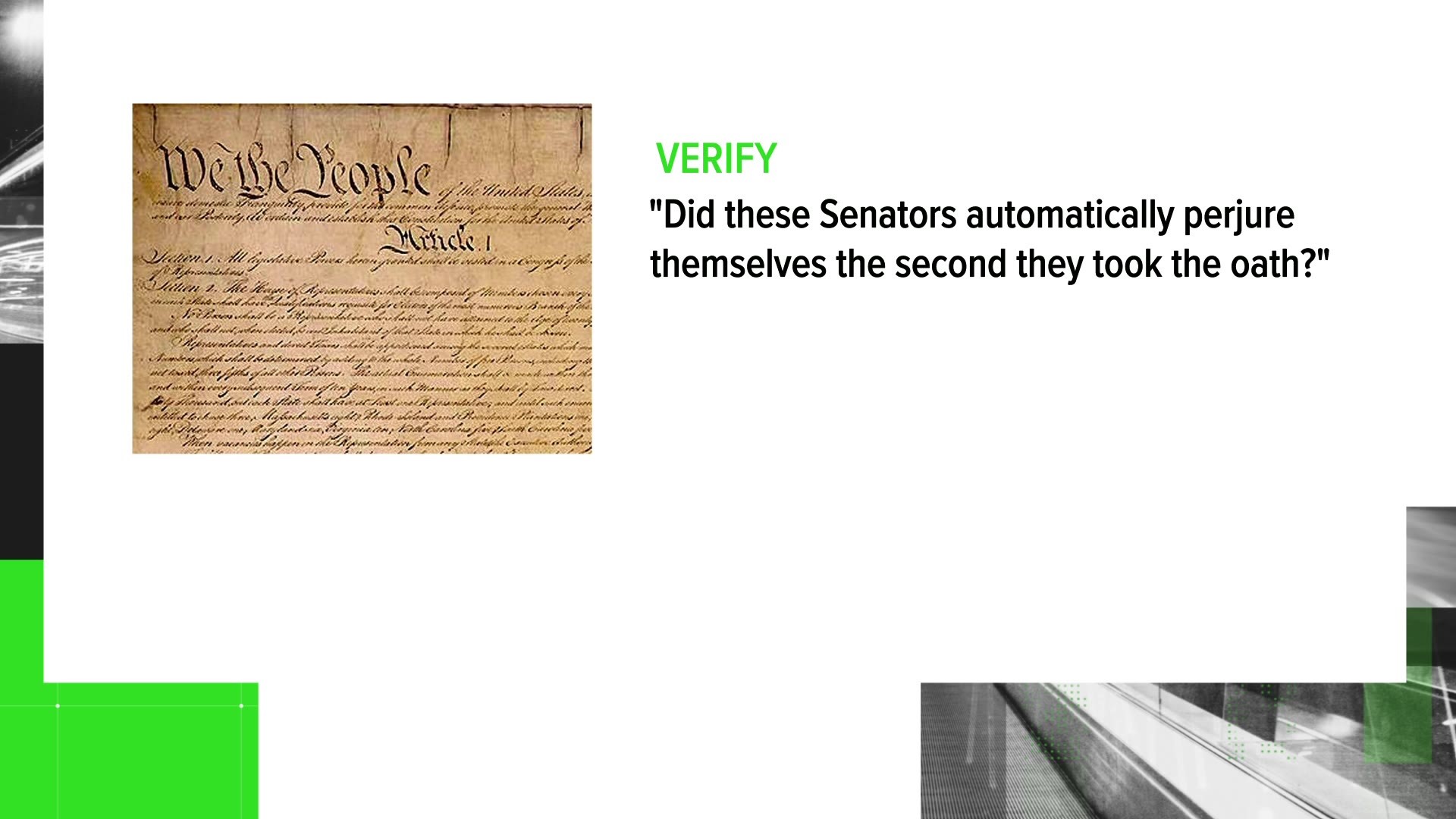WASHINGTON — QUESTION:
Senators who have already said how they are going to vote, and have expressed a bias, are they automatically guilty of perjury when they take their ‘impartiality’ oath?
ANSWER:
No, thanks to special protections the Founding Fathers gave to Congress
SOURCES:
Robert Ray– partner at Zeichner Ellman & Kraus LLP
James Ziglar– Senior Counsel at Van Newss Feldman LLP
Lawrence Lessig– Professor at Harvard Law School
PROCESS:
Chief Justice Roberts swore in members of the Senate to act as jurors Thursday, kicking off the impeachment trial.
Several members of the Senate have publicly said how they plan to vote.
Sen. Mitch McConnell said on live TV in December, “I am not an impartial juror,” which led a group of lawyers to send an open letter to the Senate to take the oath of impartiality seriously.
Under the constitution, when the President is tried for impeachment, senators must take an “Oath of Affirmation“:
“I solemnly swear (or affirm, as the case may be,) that in all things appertaining to the trial of the impeachment of __________ now pending, I will do impartial justice according to the Constitution and laws: so help me God.”
A viewer asked the Verify team whether all that political talk ahead of the trial could come back to bite some senators who swore to be impartial jurors.
“If senators have already publicly stated their bias on guilt or innocence in the media and are then sworn in by Chief Justice Roberts to be impartial jurors, are they automatically guilty of perjury?” a viewer asked the team in an email.
Our Verify team spoke to three constitutional experts: Robert Ray, a partner at Zeichner Ellman and Krause LLP, Lawrence Lessig, a professor at Harvard Law School, and James Ziglar, who served as the Sergeant at Arms of the U.S. Senate during the Clinton Impeachment (Nov. 9, 1998 – Aug. 2, 2001).


They all agree that senators can’t be automatically found guilty or charged with perjury for expressing an opinion and then taking the oath.
There’s no legal precedent of this ever happening, Ziglar explained.
Ziglar said McConnell’s statement was akin to what Sen. Robert Bryd said before the Clinton impeachment trial, when Bryd said he did not believe what Clinton had done was a removable offense.
“That is no different than Mitch McConnell or Lindsey Graham or whoever else,” Ziglar said. “It was quite clear that Robert Bryd had prejudged the evidence. He probably shouldn’t have said that, but he did. He obviously repeated that when he voted not to convict Clinton, but he had already set the stage for his conclusion before he had taken his oath.”
Robert Ray explained that congress members actually have special privileges under the constitution that providesimmunity from prosecution.
Basically, under the “speech or debate” clause in the Constitution, they can’t be taken to court for perjury for performing their Senate duties.
“People toss around the word ‘perjury’ like it’s a flavor of ice cream — it’s not an ice cream flavor, it’s a federal crime,” Ray said. “The answer is no…you cannot prosecute a member of Congress for violating that oath.”
Lawrence Lessig, a law professor at Harvard University, referred our researchers to an Opinion piece he penned in The Washington Post.
“To swear a false oath is perjury — the crime President Bill Clinton was charged with in his impeachment,” Lessig wrote in the Washington Post. “Yet given the Constitution’s speech or debate clause, a senator likely could not be charged with perjury for swearing falsely on the Senate floor. Instead, it is the Senate itself that must police members’ oaths — as it has in the past.”
So we can verify that senators are not automatically guilty of perjury, if they’ve already expressed how they will vote on impeachment.
Latest headlines:

